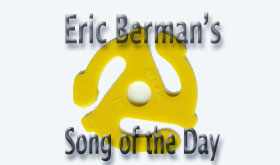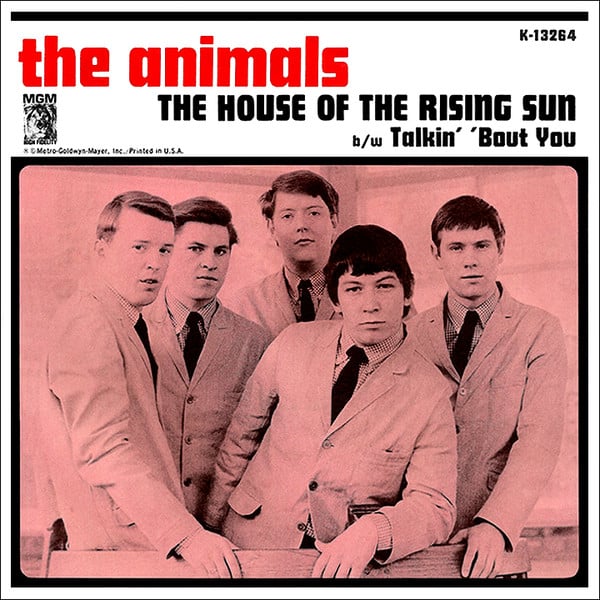
Song Of The Day by Eric Berman – The Jukebox Series #83 – Lou Rawls: “Love Is A Hurtin’ Thing” b/w “Dead End Street”– Capitol/Collectables COL-6081
Welcome back my friends, to the series that never ends…
“The Jukebox Series” focused on the 80 records that currently inhabit my 1963 Seeburg LPC1 jukebox. I’ve had my jukebox (or as I like to call it “the prehistoric iPod”) for a little over twelve years and in that time I’d like to think that I’ve perfected the mix of 45s within. Over the years, records have come and gone out of the ranks of the juke, but they were all at one time juke-worthy. I’ve decided to expand “The Jukebox Series” to include many of the “juke-worthy” records that are no longer currently in the mix, but at one time inhabited a coveted slot.
Most people remember Lou Rawls for his silky-smooth vocal delivery and his disco era hit “You’ll Never Find Another Love Like Mine,” but by the time he had that hit in 1976, Rawls had already been recording albums, and yes many hits, for 14 years.
Chicago-born Rawls got his start by replacing Sam Cooke in the Gospel group, The Highway QC’s. After a stint in the Army, Rawls joined another Gospel group called Pilgrim Travelers. While on the road with Sam Cooke and The Travelers, Rawls was in a serious car accident that left him pronounced dead at the scene of the accident. He was revived but was in a coma for five days before regaining consciousness. After he recuperated, Rawls began doing session work, most notably singing background vocals on Sam Cooke’s “Bring It On Home To Me.”
He was signed to Capitol Records by staff producer Nick Venet (The Beach Boys, The Kingston Trio, Nat King Cole, Glen Campbell) and recorded his first album, Stormy Monday, for the label in 1962 backed by the Les McCann Trio. The Les McCann Trio was a stalwart of the Sunset Strip jazz clubs and was also signed by Nick Venet to Pacific Jazz Records. Their lineup included McCann on piano, Leroy Vinnegar on bass and Ron Jefferson on drums. Rawls’ early albums featured a mix of jazz and blues standards, but it wasn’t until Rawls cut a proper soul album in 1966 that his star began to rise in the industry.
That album was called Soulin’ and it featured the top side of today’s double-sided reissue jukebox single, Rawls’ first top forty hit “Love Is A Hurtin’ Thing,” which climbed to #13 on the pop charts, while topping the R&B charts in 1966. The song was written by Ben Raleigh and Dave Linden, and covered by several artists including The Temptations and Big Maybelle.
The flip of today’s single was one of Rawls’ patented soul monologue hits called “Dead End Street” which painted a bleak picture of Chicago ghetto life circa 1967. The song was originally on Rawls’ David Axelrod-produced 1967 album called Too Much.
The monologue or spoken recitation hit was not a new idea when Rawls brought it to the soul charts. Country artists had been doing spoken word records for years, whether by Hank Williams under the guise of Luke The Drifter, or songs like T. Texas Tyler’s “Deck Of Cards,” Jimmy Dean’s “Big Bad John,” Red Sovine’s “Phantom 49” and later on with songs like Johnny Cash’s “A Boy Named Sue,” Charlie Daniels Band’s “Uneasy Rider” and C.W. McCall’s “Convoy.”
The difference between these songs and Rawls’ take on the spoken hit is far more organic since Rawls’ recordings began as unprepared monologues that sprang up during concert recordings or recording sessions that in essence worked to set the songs up before launching into them properly.
Rawls: “I was working in little joints where the stage would be behind the bar. So you were standing right over the cash register and the crushed ice machine. You’d be swinging and the waitress would yell, ‘I want 12 beers and four martinis!’ And then the dude would put the ice in the crusher. There had to be a way to get the attention of the people. So instead of just starting in singing, I would just start in talking the song.” (http://www.lourawls.com/rawlsbio.html)
Rawls’ “Dead End Street” climbed to the #3 Position on the R&B charts (and #29 pop) and won him a Grammy for Best R&B Vocal Performance in 1967. While the single was on the charts, Rawls performed at The Monterey Pop festival alongside such luminaries as Otis Redding, Jimi Hendrix, Simon & Garfunkel, The Grateful Dead and Jimi Hendrix.
He continued to record for Capitol scoring hits like “Tobacco Road” and “Your Good Thing (Is About To End),” plus many others. He also opened for The Beatles on their 1966 tour in Cincinnati. In total, Rawls recorded over twenty albums for the label before signing with MGM in 1970.
While he only recorded three albums for MGM, he did score his Grammy-winning hit “Natural Man” for the label. He signed to Kenneth Gamble and Leon Huff’s Philadelphia International Records label in 1976, where he had his greatest successes releasing million-selling albums and the hits “You’ll Never Find Another Love Like Mine,” “Lady Love,” “Let Me Be Good To You,” and “See You When I Git There.” Rawls died of cancer in 2006 and left behind a legacy of gritty blues and silky soul recordings.






